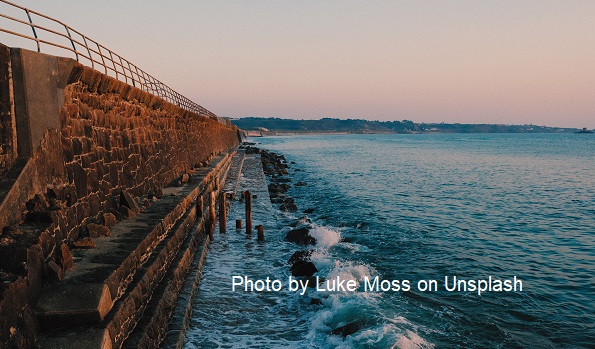In the aftermath of the worst ever shipwreck in the Channel, EU states have agreed to deploy a Frontex plane to monitor the strait. Last week’s tragedy has reignited discussion of the dehumanising effects of the term ‘migrant’ when used in media and political discourse. Charities who called the disaster “utterly predictable” urges the government to ensure humanitarian visas and other safe ways for people to seek protection. The UK is doubling down on an illegal and dangerous plan to turn people back at sea that is facing multiple legal challenges.
A week on from an unprecedented shipwreck that took at least 27 lives, representatives from France, Belgium, Germany, the Netherlands, the EU, and Frontex come together to discuss how such tragedies in the Channel could be avoided. The outcome of the crisis talks in Calais was the deployment of a Frontex plane to “fly day and night” over the European coasts of the Channel to spot small boat crossings. The UK home secretary’s invitation to the meeting was rescinded by France after UK prime minister Boris Johnson shared a letter on Twitter blaming France for the tragedy. The criticism that the two countries are bickering at the expense of people’s lives re-emerged after the two sole survivors from the incident reported that the sinking passengers been referred back and forth when they contacted the UK and French authorities.
Media reporting of the tragedy that referred to the victims as “migrants” has come under fire from activists and academics. “When we describe a group as migrants, we are saying they do not have rights or entitlements. Their lives are somehow less worthy. Migrant […] has a political function,” said political scientist and refugee expert Alexander Betts. Just a few weeks before the disaster, photographer Abdul Saboor interviewed Kazhall Ahmad, a 46-year old Iraqi Kurd who was killed along with her three children in the shipwreck. He shared the images on Instagram in an appeal for viewers to humanise those who had died. When the photographer asked one of Kazhall’s children why he wanted to reach the UK, he said: “I want to go to school and learn English and I want to be barber”. Charities have not finished identifying the bodies of the victims and say the process may take weeks.
As they deplored the France-UK “blame game” in response to the tragedy, NGOs called on the two governments to provide safe pathways for people to seek asylum. If these were put in place, “smuggling networks would be obsolete”, said French aid group Utopia 56. Safe routes could encompass “wide-ranging resettlement programmes, humanitarian visas, and reformed family reunion rules”, said CEO of ECRE member the Refugee Council Enver Solomon. The French interior minister, Gerald Darmanin, also urged Britain to open up a legal route for asylum seekers to prevent risky journeys. He reiterated a suggestion that British immigration officials would process asylum requests in northern France from people camped out around the major ports on France’s coast. Darmanin’s rhetoric has been criticised as hypocritical by NGOs who argue France has done little itself to ensure safe passage and has instead exposed people on the move to harsh living conditions, police brutality and regular evictions.
In parliament on 30 November, Boris Johnson defended the Nationality and Borders Bill currently in the legislative process, saying it would give the UK Border Force “the power to turn people back at sea”. MPs, peers and human rights lawyers have criticised the bill for incompatibility with the UK’s international obligations and for putting lives at risk. Home secretary Priti Patel has insisted pushbacks have a “legal basis”, though a permanent secretary from her office conceded that only a “small proportion” of boats can be turned back. On 1 December, the government said it would not amend the Bill to reduce the risk to life posed by pushbacks (for instance, by banning pushbacks of unseaworthy vessels). The plan is now facing three legal challenges from organisations who say it breaches human rights and maritime law. The first court case, launched by Freedom from Torture, argues the turnback policy has no legal basis, authorises unlawful conduct by UK officials and is prohibited by the 1951 Geneva Convention. A second challenge from Channel Rescue highlights the UK’s obligations under international law to assist any boat in distress. The third challenge, arguing the policy should have been publicised, is supported by the union representing Border Force staff. The general secretary of the Public and Commercial Services union (PCS) said the pushback plan was “…unlawful, unworkable and above all morally reprehensible. Our Border Force members are aghast at the thought they will be forced to implement such a cruel and inhumane policy”. According a leaked Home Office document, government lawyers have warned the home secretary that she has poor odds of successfully defending a court case.
For further information:
- ECRE, Channel: Tragedy Sparks Fury Over Lack of Safe Routes, Activists Take Home Secretary to Court, Asylum Seekers Make Up Only 6% of UK Immigrant Population, November 2021
- ECRE, France: Strikers Demands Go Unmet as 1,500 People are Evicted, Darmanin Blames British NGOs for Channel Crossings, Reception Failure at French-Italian Border, November 2021
Photo by Luke Moss on Unsplash.
This article appeared in the ECRE Weekly Bulletin. You can subscribe to the Weekly Bulletin here.

